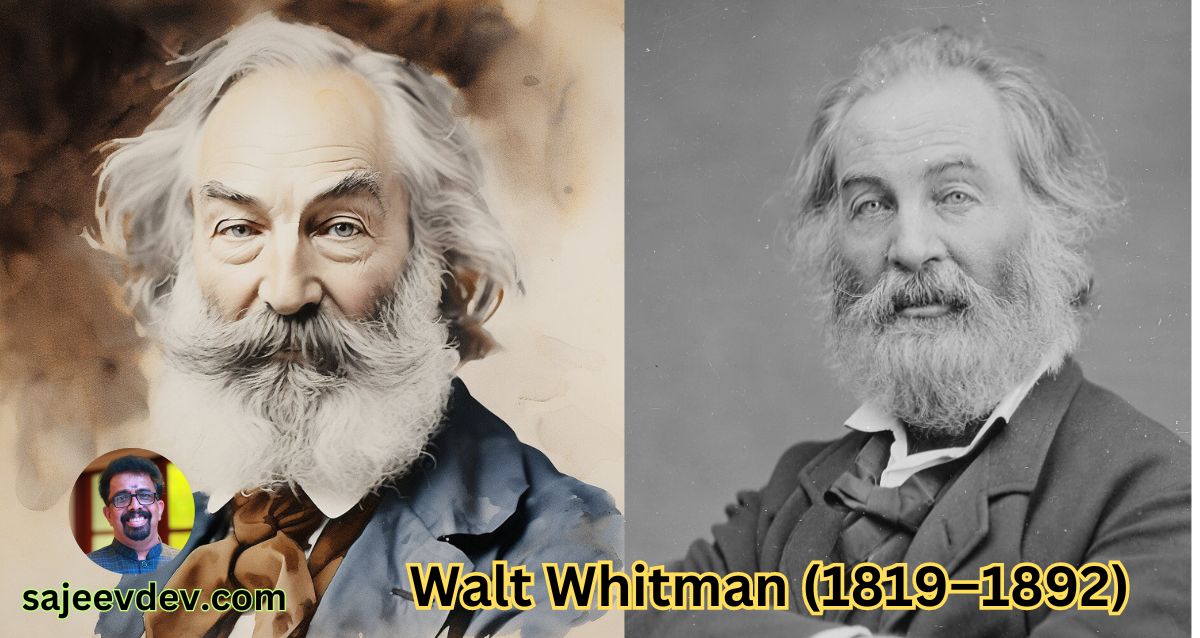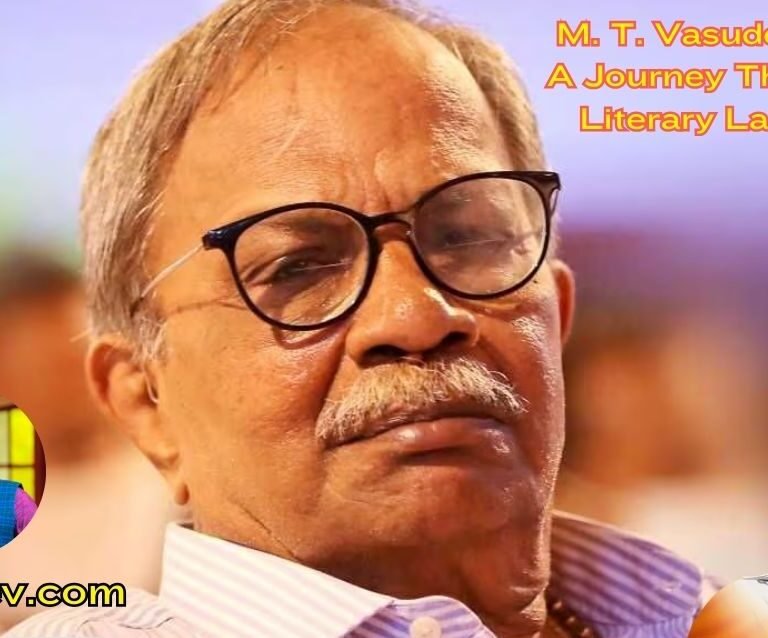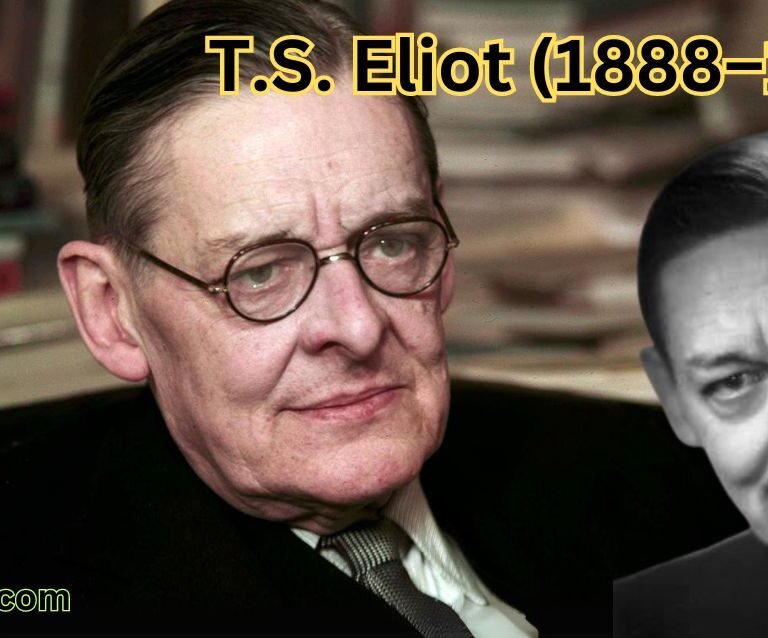Walt Whitman, born on May 31, 1819, in West Hills, Long Island, emerged as one of the most influential figures in American literature
Walt Whitman, born on May 31, 1819, in West Hills, Long Island, emerged as one of the most influential figures in American literature. His life coincided with a period of profound transformation in the United States, characterized by the burgeoning Industrial Revolution, the expansion of democracy, and the tumultuous debates surrounding slavery. These socio-political changes substantially shaped Whitman’s perspectives and eventually influenced his poetic style.
Raised in a modest family, Whitman’s early exposure to the diverse mosaic of American life would become a hallmark of his work. From an early age, he was deeply impacted by the burgeoning democratic ideals and the increasing push for social reforms in his lifetime. The rich tapestry of experiences—detailed through his encounters with various walks of life—seamlessly integrated into his poetry, which set him apart as a distinctive voice. His early work as a teacher, journalist, and editor enabled him to cultivate a keen understanding of the democratic principles that he would later champion in his writings.
Whitman’s literary journey began with the publication of his seminal work, “Leaves of Grass,” in 1855. Embodying the spirit of transcendentalism and borrowing influences from Emerson and Thoreau, Whitman’s poetry broke from traditional forms and adopted a free verse style that mirrored the freedoms he celebrated. In a society marked by rigid structures, his innovative approach sought to reflect the raw humanity and diverse experiences of everyday Americans. This unique vision positioned him not only as the father of free verse but also as a profound advocate for the democratic ideals that defined his era. Through his exploration of individualism and collective identity, Whitman forged a legacy that continues to resonate in contemporary discussions on democracy and art.
The Birth of Free Verse
Walt Whitman’s introduction of free verse marks a pivotal moment in the evolution of poetry, a transformation that allowed for greater personal expression and a departure from the rigid structures that dominated the literary landscape of his time. Free verse, characterized by its lack of consistent meter and rhyme, provided Whitman with the liberty to express his thoughts and emotions without the constraints imposed by traditional forms. This innovative approach enabled poets like Whitman to capture the complexities of human experience, creating a deeper connection between the poet and the reader.
In his seminal work, Leaves of Grass, Whitman employs free verse not just as a stylistic choice but as a philosophical declaration. By forgoing conventional metrical patterns, he was able to mirror the natural rhythms of speech and emphasize the individuality of his voice. This form of poetry reflected the vastness of American life and culture, embracing a sense of democracy that resonated with the diverse experiences of the nation. The fluidity of free verse allowed Whitman to weave together imagery, emotion, and thought in a manner that traditional meter could not achieve.
Moreover, Whitman’s free verse invites readers to engage with his work in a more personal and immediate way. The absence of formulaic structure removes barriers and encourages an emotional reaction rather than a purely intellectual one. As such, his poetry embodies the essence of the human experience, transcending the limitations of time and place. This revolutionary approach not only distinguished Whitman from his contemporaries but also laid the groundwork for future generations of poets, fundamentally altering the trajectory of American poetry.
Leaves of Grass: A Reflection of American Identity
Walt Whitman’s monumental work, Leaves of Grass, represents a cornerstone of American poetry and serves as a profound reflection of the nation’s identity. First published in 1855, the collection showcases Whitman’s innovative use of free verse, breaking away from traditional poetic structures to embrace a style that mirrors the democratic ethos he championed. Through an unrestrained and personal voice, Whitman weaves together themes of individuality, nature, and community, inviting readers to explore the complexities of the human experience.
At its core, Leaves of Grass celebrates the diverse cultural tapestry of America. Whitman portrays a collective American spirit that is inclusive of various backgrounds and experiences. His famous line “I contain multitudes” symbolizes the coexistence of multiple identities within a single person, which resonates with the immigrant narrative that defines the United States. This celebration of diversity not only reflects his own identity but also calls for an acceptance of the differences that contribute to the nation’s character.
The structural innovation of Leaves of Grass complements its thematic richness. Whitman’s use of long, flowing lines encourages a sense of expansiveness, evoking the vastness of American landscapes and the boundless possibilities of democratic expression. His signature anaphora and rhythm create an engaging reading experience, inviting audiences to reflect on their own lives and the society surrounding them. The work’s annual revisions demonstrate Whitman’s ongoing dialogue with the changing social and political climate, reinforcing his commitment to democracy and individual freedom.
Whitman’s Leaves of Grass thus emerges as more than a compilation of poems; it is a living document that encapsulates the spirit of America. By intertwining his personal narrative with national ideals, Whitman not only solidified his role as the father of free verse but also established a framework for future generations of poets to explore themes of identity, democracy, and popular expression.
Themes of Democracy and Inclusivity
Walt Whitman’s poetry is profoundly interwoven with the themes of democracy and inclusivity, reflecting his steadfast belief in the intrinsic value of every individual. His work embodies the spirit of egalitarianism, calling for the recognition and celebration of all voices, particularly those of marginalized groups. Through verses that champion social equality, Whitman articulates a vision where every human experience contributes to the collective landscape of humanity.
In “Leaves of Grass,” Whitman articulates the principle that democracy must extend beyond political systems to embrace the fabric of society, ensuring that every individual is acknowledged and valued. The poem “Song of Myself,” for instance, serves as a canvas where he paints a diverse tapestry of American life. Throughout the poem, he positions himself as a representative voice, simultaneously embodying different identities and experiences, thereby asserting inclusivity as a foundational aspect of democracy. His famous line, “I celebrate myself, and sing myself,” encapsulates this ethos, proposing that the act of self-celebration is inherently linked to the celebration of others.
Moreover, in “I Hear America Singing,” Whitman echoes the significance of varied voices contributing to a harmonious whole. Here, he samples the songs of workers from different walks of life, emphasizing the collective identity created through their labor and existence. This metaphorical ‘chorus’ not only showcases diversity but also reinforces the notion that democracy flourishes when all individuals, regardless of their societal status, are given the opportunity to resonate within the larger narrative. In this way, Whitman’s work is not merely poetry; it is a powerful commentary advocating for a society rooted in inclusivity and the recognition of shared humanity.
The Interconnectedness of All Living Things
Walt Whitman’s poetic philosophy profoundly revolves around the concept of interconnectedness among all living entities. This notion serves as a cornerstone of Whitman’s work, illustrating his belief that every individual is intrinsically linked to one another and to nature itself. Within his writings, Whitman often evokes a spiritual view of life, portraying nature not as a mere backdrop to humanity, but as a vital, dynamic participant in the web of existence. Through his vivid imagery and varied themes, Whitman celebrates the singularity of experience that unites all beings, inviting readers to reflect on their shared humanity.
In Whitman’s magnum opus, “Leaves of Grass,” this interconnectedness is manifested through his democratic ethos, which holds that each person’s voice and experience matter equally. Whitman often emphasizes the beauty of diversity in society, advocating for an understanding that transcends individual differences. His poems call for a collective identity, suggesting that the struggles and joys of one are echoed in the lives of many. In this light, Whitman’s work acts as both a reflection of and a contribution to the broader human experience, highlighting how connections can foster empathy and mutual respect.
Furthermore, his exploration of nature emphasizes a symbiotic relationship where humanity and the environment coexist and thrive together. Whitman’s reverence for the natural world reinforces the idea that our lives are interwoven with the rhythms of the universe. As he invites readers to recognize the importance of these relationships, he also challenges them to embrace a holistic view of existence, which fosters deeper appreciation and responsibility toward nature and fellow humans alike. This profound understanding of interconnectedness continues to resonate in contemporary discussions about unity and community in an increasingly diverse and complex society.
Whitman’s Expansive and Celebratory Style
Walt Whitman is heralded for his distinctive writing style, which is marked by long lines, vivid imagery, and a conversational tone. This unique approach to poetry is not merely a stylistic choice; it mirrors the vastness and diversity of America itself. Whitman’s work encapsulates the idea of a democratic ethos, embracing multiple voices and perspectives, thereby allowing for a more inclusive celebration of life.
One of the most notable features of Whitman’s poetry is his use of free verse. Breaking away from traditional metrical constraints, he employs enjambment and varied line lengths to create a rhythm that flows like natural speech. This technique not only enhances the accessibility of his work but also reflects the dynamism and unpredictability of the American landscape. Each long line serves as a metaphor for the broad expanses of the country, inviting readers to lose themselves in his expansive worldview.
Moreover, Whitman’s rich imagery paints a vivid picture of life in all its forms. He often draws upon nature, urban life, and the human experience, weaving together elements that highlight the beauty and complexity of existence. From the bustling streets of New York City to the tranquil serenity of the countryside, his poems encompass a wide array of settings, encouraging readers to appreciate the interconnectedness of all life. This celebration of diversity is central to his theme of democracy, where every voice is valued and every experience is worthy of exploration.
The conversational tone found in Whitman’s work fosters a sense of intimacy and immediacy, inviting readers to engage with his ideas on a personal level. By addressing the audience in a direct and inclusive manner, he breaks down barriers between the poet and the reader, inviting them to participate in the celebration of life that he so passionately captures. Through this expansive style, Whitman not only expresses his artistic vision but also embodies the spirit of a nation striving for unity amid its differences.
Impact on Modern Poetry and Literature
Walt Whitman, hailed as the father of free verse, significantly transformed the landscape of modern poetry and literature. His innovative approaches to structure and form liberated poets from the constraints of traditional meter and rhyme, enabling a new wave of creativity that emphasizes rhythm and natural speech. This departure from conventional poetic techniques not only redefined how poetry could be written but also how it could be experienced by readers. Whitman’s influence is evident in the works of many renowned poets, including Allen Ginsberg, Theodore Roethke, and even contemporary voices like Ocean Vuong. They have taken inspiration from his use of free verse, often employing expansive lines and a conversational tone that echoes Whitman’s own style.
Moreover, the themes that Whitman explored continue to resonate profoundly within modern literature. His focus on individuality, democracy, and the human experience transcends time, engaging contemporary writers to address similar subjects in their works. By embracing topics such as identity, love, nature, and the collective American experience, Whitman set a precedent that remains relevant today. His fearless exploration of sexuality, social justice, and the human condition has paved the way for writers who seek to challenge societal norms and express their truths.
Furthermore, Whitman’s lyrical approach often blurs the boundaries between poetry and prose, inviting a more fluid understanding of literary forms. This blending has influenced contemporary novelists and poets who incorporate poetic elements into their narratives. For instance, the integration of poetic language in prose works can create a rich, evocative reading experience that mirrors Whitman’s style. As a result, the impact of Walt Whitman on modern poetry and literature is both profound and enduring, underscoring the significance of his contributions in shaping literary expression for generations to come.
Criticism and Controversies
Walt Whitman, often celebrated as a pioneer of free verse poetry, was not without his critics, both during his lifetime and in subsequent years. His bold themes, particularly regarding sexuality, individuality, and democracy, elicited a spectrum of societal reactions. Many of his contemporaries were taken aback by his frank explorations of sexual identity, with his seminal work, “Leaves of Grass,” being both praised and condemned. The unflinching depiction of homoeroticism in his poetry sparked outrage among conservative factions, who viewed his themes as morally corrupting. This criticism highlighted the tension between tradition and the burgeoning modernist sensibilities of the time.
Furthermore, Whitman’s insistence on individuality and the celebration of the self challenged the prevailing norms of the 19th century. This was not merely an artistic choice; it was an ideological stance that critiqued societal conformity. Critics argued that his radical individualism undermined collective ideals, leading to accusations of narcissism. Despite this, Whitman’s democratic ethos, particularly his belief that poetry should speak to all people, was a counterpoint to such critiques, emphasizing inclusivity over exclusivity in artistic expression.
In the years following his death, the complexities of Whitman’s work continued to fuel controversy. Academic critiques have emerged that engage with his positions on democracy, prompting debates about the true nature of his political ideals. Scholars have assessed how his work reflects the challenges of incorporating diverse voices into the democratic narrative. Underlying these critiques is the broader discourse on how art intersects with issues of identity, power, and societal change.
Ultimately, the disputes surrounding Whitman’s work underscore his ongoing relevance as a figure who not only challenged artistic conventions but also provoked discussions about societal values and democratic ideals.
Walt Whitman’s contributions to poetry and American culture extend far beyond the pages of his celebrated collections
Walt Whitman’s contributions to poetry and American culture extend far beyond the pages of his celebrated collections. As a pioneer of free verse, he broke traditional poetic forms, allowing for a more expansive expression of thought and emotion. This radical departure facilitated new avenues for marginalized voices and individual experiences, positioning Whitman as a forerunner of modernist literature.
In addition to his innovations in poetic form, Whitman’s work is deeply rooted in the principles of democracy and equality. His poetry often encapsulates the ideals of inclusivity and diversity, reflecting a profound commitment to the American spirit. Whitman’s depiction of various social classes, races, and genders serves as a testament to his belief in the inherent worth and dignity of all individuals. Through his verses, he championed the notion that poetry should mirror the complexities of human life, advocating for a more egalitarian society.
Whitman’s legacy persists today, influencing countless poets, writers, and artists who continue to explore themes of identity, belonging, and social justice. His works are frequently referenced in discussions surrounding American values, encouraging dialogues about freedom and the collective human experience. By venturing into the landscape of personal and collective struggle, Whitman has inspired generations to consider their roles within the broader tapestry of democracy.
Furthermore, the universal themes present in his writings resonate across cultures and epochs, establishing a timeless connection with readers. The celebration of individuality, the quest for self-discovery, and the embrace of the human experience are threads that weave through his poetry, solidifying Whitman’s position as a pivotal figure in American literature. As we reflect on his contributions, it is clear that Walt Whitman’s impact on poetry and our understanding of democracy remains unmistakably profound.









